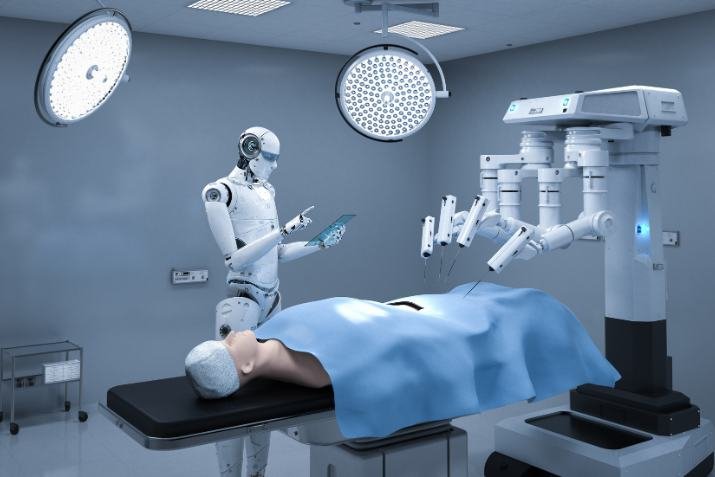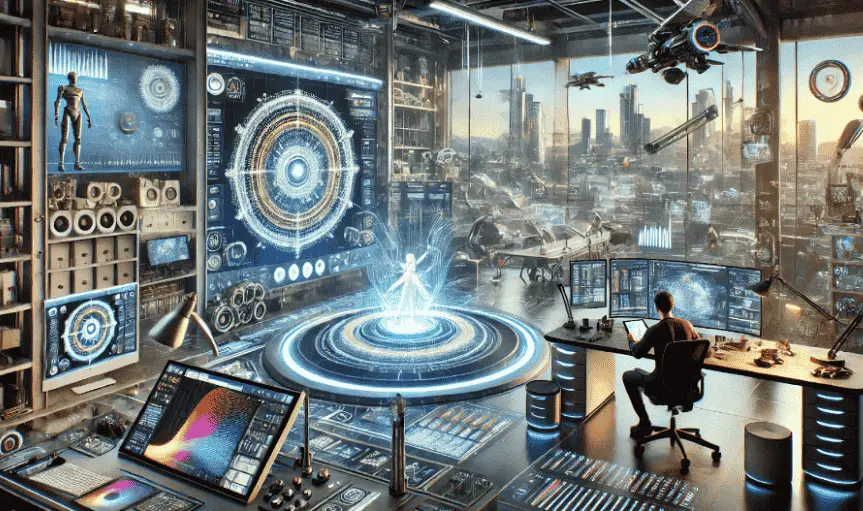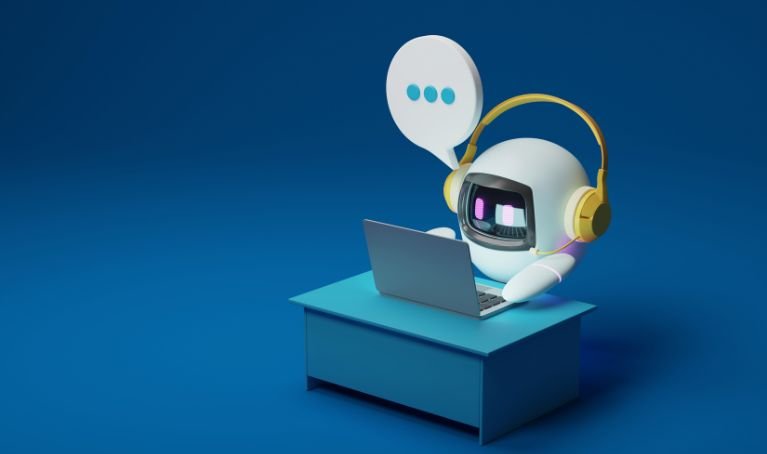Different Aspects of How AI is Revolutionizing the Medical Field

The most common term used in many industries today is called artificial intelligence. AI is expanding boundaries. It provokes innovative thinking, which leads to better solutions and a prospering community. A nation will not move forward if its health is compromised. Therefore, AI in healthcare is necessary to customize medicine and identify infections timely.
Technology processes information quickly. Patients are also pleased with the outcomes. Today, we explore how AI is revolutionizing the medical field. Its implications on doctors, nurses, and patients are also crucial to the discussion.
How AI is Revolutionizing the Medical Field and Its Sectors?
Managing Medical Data
AI is resulting in the electronification of medical records. As a result, the data is stored and processed online. AI has the power to process information in large batches. In addition, doctors, nurses, and healthcare staff can easily access patient data according to their needs. It leads to timely decision-making.
AI revolutionization in the medical field has impacted imaging positively. X-rays, MRIs, and ultrasounds are very clear. Machine learning can identify concerns and issues. In addition, thanks to AI, radiologists can better diagnose anomalies, tumors, and lesions. The actions lead to better interpretation and outcome.
Precision in Surgeries
Due to the implementation of AI in healthcare, surgeons are able to perform operations with extreme precision. The technology offers real-time input, which leads to better decision-making. Robotic arms stabilize movements. Thus, the probability of errors is reduced significantly.
Customized Medical Treatments
Many wonder how AI is revolutionizing the medical field in terms of treatment. Artificial intelligence has led to specific and tailored treatments to ensure patient health. The outcomes are reliable with minimum side effects. In short, doctors are constantly updated on the patient’s health through different devices and wearables. AI updates patient records regularly as well.
Patient Monitoring
Patient supervision has become a lot easier and simplified since AI has been part of healthcare. Machine learning maintains a detailed record of blood pressure, glucose levels, and heart rate. The staff are alerted when the vitals are irregular. As a result, medical emergencies are avoided.
Drugs
AI in healthcare has fastened the discovery of new compounds used in medicine for speedy recovery. Robots and fusions stimulate molecules so the human minds can study their properties. AI has become the future of medication very quickly. The research is gearing pace. At the same time, the costs are reduced.
Day and Night personalized care
Thanks to telemedicine, patients can ask for medical assistance at any time. In addition, the virtual assistant will guide the attendant in performing procedures before the experts arrive. Healthcare now involves applications on your phones, video calls, and remote devices. Chatbots answer frequently asked questions and provide basic information to reduce doctor’s workload,
Utility Infrastructure
Algorithm predictions
AI in healthcare supervises and predicts how systems will perform in the future. The feature is now found in equipment as well. AI will identify possible flaws and malfunctions before they occur. The system has alarms and other elements to prevent extended downtime. As a result, the operations in clinics and hospitals do not halt.
Fire safety
How AI is revolutionizing the medical field works by identifying potential fire hazards. It prevents overloads and short circuits, which can lead to huge fires. Artificial intelligence and machine learning ensure electrical infrastructure and undamaged during disasters.
Energy efficiency
AI contributes to efficient energy consumption in hospitals. The money saved from reduced expenses on lighting is invested in better equipment. In addition, adaptable cooling and heating systems are installed that factor in patient care. At the same time, its environmental impact is also reduced.
Logistic optimization
AI also ensures the electrical equipment is working efficiently every time. In addition, the technology also results in the efficient allocation of healthcare resources.
AI in Healthcare | The challenges
Artificial intelligence grew to $20.65 billion this year. Even though many individuals appreciate the contribution of AI in healthcare, the advancement is still facing many challenges, such as:
Firstly, the technology must be safe for patients. Thus, the algorithm must be accurate and credible. The coding is repeatedly tested, which sometimes makes AI for healthcare very expensive.
Privacy and security are highlighted concerns because the patients worry about their personal information leaking. The staff has the same concerns. Therefore, hospitals must have strong measures to prevent breaches. Click here to learn how you can protect your computer from hackers.
We all appreciate the AI’s ability to process large batches of information. Unfortunately, it is easier said than done because of privacy struggles. The formats are inconsistent, and medical information is severely limited.
AI algorithms have a 51% ethical bias. As a result, the outcomes or medicine suggested are not impartial. It can worsen the patient’s health. Therefore, biases for gender or race must first be removed.
Lastly, it is difficult to integrate artificial intelligence into the medical field because the majority of the equipment is outdated. In addition, healthcare organizations will also need to update their software.
AI in the Medical Field | Let’s Predict the Future
Thanks to artificial intelligence and machine learning in healthcare, experts can now diagnose and treat successfully. As mentioned above, AI contributions in a predictive capacity are welcomed by all. When AI processes data, it recognizes patterns for future issues.
Secondly, AI is also helping doctors, nurses, and other staff members by reducing workload. The healthcare staff no longer wastes time on paperwork and dull administrative tasks. The automation saves time, so the experts focus on patient care.
How AI is revolutionizing the medical field is looking more promising than ever! Cost-saving and personalized features are leading to improved patient care. The disease detection tools and advanced machine algorithms allow doctors to detect illnesses. Thus, saving precious lives.
AI in Medical Field | The Social Aspects
When we discuss how AI is revolutionizing the medical field, it is essential to discuss the social implications as well. Here is how
Firstly, AI in the medical field ensures excellent health services because care is now being personalized. The staff can tailor diagnoses according to their medical history and needs. The strategy is beneficial in less fortunate communities that do not have access to excellent healthcare.
Secondly, the increase in engagement cannot go unnoticed when talking about how AI is revolutionizing the medical field. Chatbots, virtual assistants, and widgets provide relevant information in a few clicks. AI is available day and night to support the patients.
The social impact of AI in healthcare has negative aspects as well. The users worry about data security and patient privacy. In addition, AI can also replace human involvement because the tasks are now complicated. Therefore, a combination of AI and human involvement is advised for the best patient outcome.
What are Your Two Cents?
AI in healthcare has many aspects. Its contributions to analysis, future thinking, and detecting diseases are unmatched. Even though the advancement is facing challenges in its implementation, we are very hopeful about the future of medicine.
AI will dominate healthcare in a healthy capacity as new technologies surface. The evolution will process data chunks effectively for enhanced analysis. Until now, we have only seen a glimpse of what AI has to offer. Its patient outcomes, cost-reducing techniques, and intention to improve systems are appreciated.
You may also interested in:


